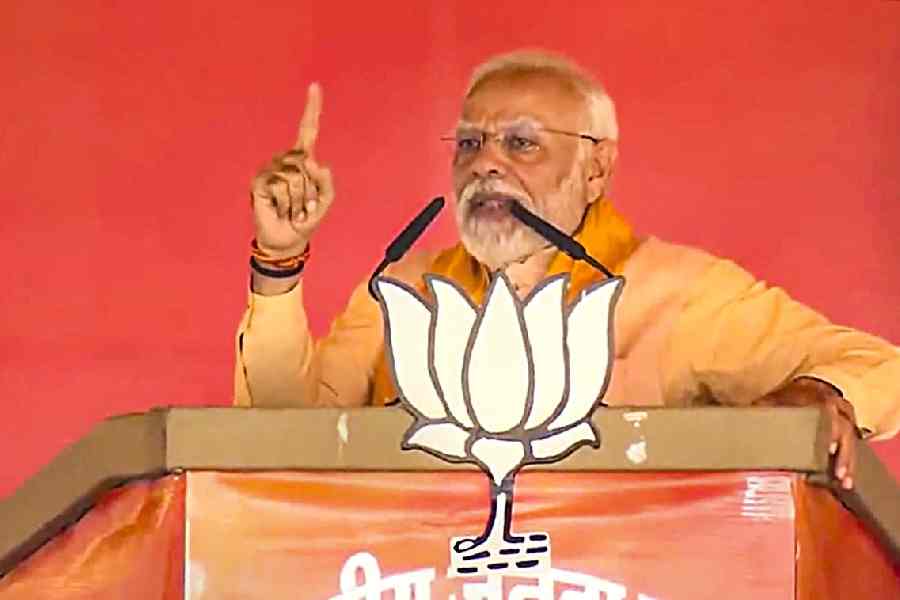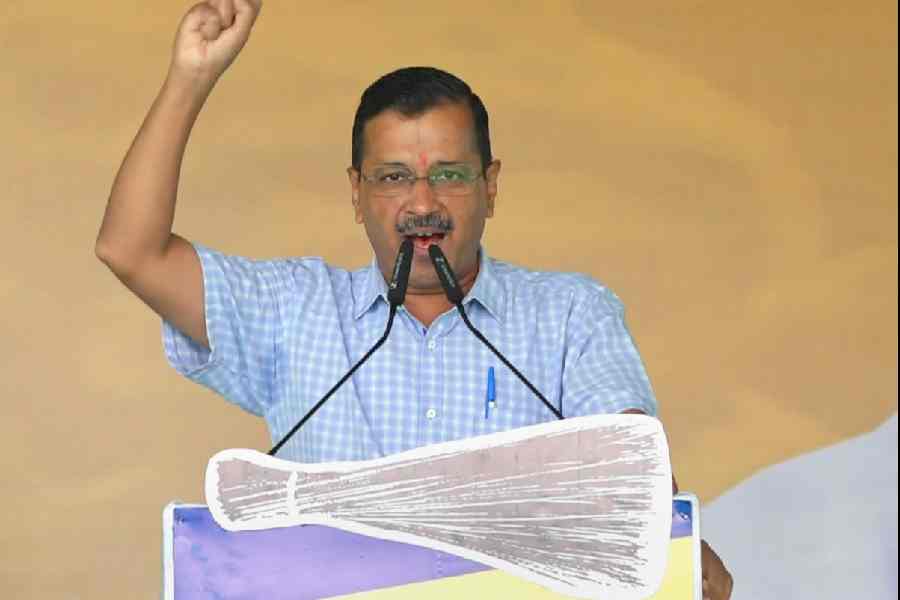Economists and food rights activists on Sunday said the five-year extension of the free rations programme for the poor, as announced by Prime Minister Narendra Modi, would leave out at least 10 crore deserving Indians because of his government’s failure to conduct the long-due population census.
They also dismissed Modi’s effort to portray his election-year move as “welfare” politics, as against Opposition parties’ “freebie” politics which he had earlier ridiculed as “rewdi culture”.
Modi had on Saturday announced that the programme that provides 5kg free rations per person every month to 80 crore beneficiaries, and was to end at the end of this year, would continue for the next five years.
The announcement came less than a fortnight after the Prime Minister, addressing an event in Satna district of poll-bound Madhya Pradesh on October 23, repeated his criticism of freebie politics as “rewdi culture”.
He was quoted in the media as saying that taxpayers were happy when the tax they paid went into welfare programmes for the poor, such as the free rations scheme, but felt unhappy if the money was distributed as freebies.
Sunil Ray, an economist and former director of the A.N. Sinha Institute, Patna, said the free rations scheme was as much an instance of freebie politics as those Modi had disparaged as “rewdi culture”.
He said that free rations, like free mobile phones or bicycles, had nothing to do with long-term development goals – unlike genuine examples of welfare schemes such as free healthcare and education, and the rural job guarantee scheme MGNREGA.
Missing 10 crore
Reetika Khera, a professor of economics at IIT Delhi, explained how the government’s failure to conduct a population census was depriving at least 10 crore people of the benefits of the free rations programme.
She said that when the UPA government enacted and implemented the National Food Security Act (NFSA) 2013, which provided heavily subsidised food grains to the poor, it did away with BPL cards as the eligibility criterion.
Instead, the Act said, the benefit would accrue to 75 per cent of the rural population and 50 per cent of the urban population, with local authorities picking the beneficiary families.
Based on the 2011 census, which put India’s population at 121 crore, and the Act’s parameters, the number of beneficiaries came to 80 crore.
With India’s population now estimated to be over 140 crore, Khera said the number of beneficiaries ought to be more than 90 crore. But the Modi government’s failure to conduct the census — due in 2021 — has forced the additional 10 crore deserving people to miss out on the benefits.
The government initially cited Covid but, long after the pandemic has passed, there’s still no word on conducting the census.
“Nearly 10 crore people who should be part of the PDS have not been issued (ration) cards. Since 2011, the population has increased, and the coverage should have taken that into account,” Khera said.
“We have a situation now where some members of a family covered by the PDS are getting their 5kg grains per month but their newborn children, newly-wed daughters-in-law, etc, have failed to get their names added.”
Two schemes
The NFSA provided for 5kg food grain per person per month under the public distribution system (PDS) at Rs 3 for 1kg rice, Rs 2 for 1kg wheat and Rs 1 for 1kg of any other cereal.
During the Covid lockdown in 2020, the Modi government launched the Pradhan Mantri Garib Kalyan Anna Yojana (PMGKAY) that gave the NFSA beneficiaries an additional 5kg of grain free.
The PMGKAY was discontinued from January 1 this year, but the NFSA began providing free 5kg food grain. After this year, the NFSA was to revert to providing subsidised rations but Modi’s announcement of Saturday means it will continue in its current avatar as a free food grains scheme for five more years.
Ray, an opponent of the “freebie culture” himself, said Modi’s free rations scheme provides a temporary solace instead of making people self-reliant, and is therefore very much a freebie.
He said such sops betray a government’s inability to provide “real development”.
“Any government that gives free rations, free mobile phones or free bicycles — all these are freebies. These are short-term benefits offered because the government is unable to ensure real development by providing income and employment opportunities to them,” he said.
“The freebie culture perpetuates the people’s dependency on the government and ushers in a parasitic economy.”
Ray said that 80 crore people being beneficiaries of a parasitic economy did not reflect well on the nation’s economy.
He said the MGNREGA counted as a welfare-enhancing scheme since it helps the majority among the poor protect themselves from economic distress and contributes greatly to improving the human development index.
“The purpose of putting freebies and welfare measures together in the same box is to mask the real intention of the ruling party, which is nothing but to influence the electorate to vote in its favour,” Ray said.
Taxpayer or not
Sameet Panda, convener of the Right To Food Campaign, Odisha, questioned Modi’s comment about taxpayer unhappiness over freebies.
He said every person was a taxpayer because they at least paid indirect taxes such as sales tax and entertainment tax. So, the insinuation that poor people are merely beneficiaries of taxes paid by others is wrong.
A case is pending in the Supreme Court on the constitutional validity of political parties promising freebies indiscriminately in their poll manifestos without regard to their possible impact on the overall economy.
“These terms — ‘freebies’ and ‘welfarism’ — are being used arbitrarily. For the BJP, it is a rewdi if offered by an Opposition party,” Panda said.
He said free or subsidised rations are necessary in India because of the high income inequality, with workers in the unorganised sector — including the self-employed — earning very little.
The Economic Survey of 2022-23 had said the growth in real wages was negative when one took inflation into account.











